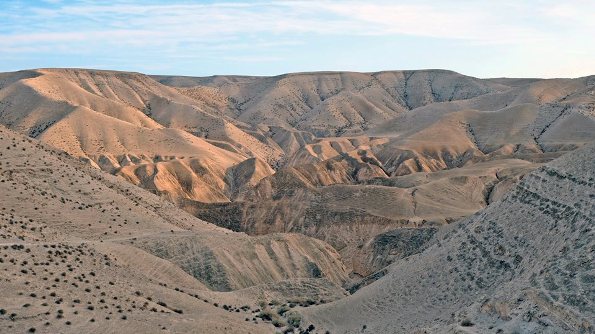If you have been to Israel lately you know that it is full of hustle and bustle and the landscape is beautiful with trees and many fields full of all types of crops. Yet, it was not always that way. In 1867, Mark Twain took a trip to the Holy Land. He later reported “Palestine is desolate and unlovely. The further we went the hotter the sun got, and the more rocky and bare, repulsive and dreary the landscape became.” He found it to be an ugly barren wasteland.

In this week’s double Torah reading, the second Parsha, Bechukosai contains a section known as “the Tochecha”. It is filled with terrible things that will happen to the Jewish people if they sin. In the middle of it is a verse (26:32) that says “I will lay waste to the land (the land will be desolate) and your enemies who dwell in it will be wretched”. Hashem promises that even though we were kicked out of the land and sent into exile, no one else will enjoy the land. We know that for almost 2000 years after the Beis Hamikdosh (Holy Temple) was destroyed and we were exiled, the land of Israel was a wasteland. Rashi and Rabeinu Bechaya comment quoting the Midrash that this is a good thing for us that our enemies will gain no pleasure from our land. Rabeinu Bechaya adds that they will try to build and not be successful.
The Torah describes the Land of Israel as the most fertile land, yet it turns into a desolate land. We see today when we are back in our homeland how fertile it is. What was the point of it lying desolate for so long? Rabbi Yissocher Frand points out that besides the fact that we are happy that our enemies can’t enjoy the land when we are not there, this is a larger blessing. Imagine what would have happened if the land was fertile and productive for the conquerers. It would have become a large center of commerce and habitation. Its value would be extremely high and they would have been much more reluctant to give it up. He adds that while it seems unfair that countries around Israel have oil and Israel doesn’t, in reality it was for our benefit. If there was oil, it would have been almost impossible for us to be allowed to return to the land.
If we pay attention, we can find blessing even in the midst of destruction. In the middle of the section describing the woes that will happen to the Jewish people Hashem lets us know that He is still looking out for us. The seeds of salvation are built in to the land.
Next Thursday evening, we will celebrate the reunification of Yerushalayim at Jewish Unity Live. Let us pay attention to the fact that Hashem has kept His promise and the land has once again become fertile while the Jewish people are living upon its soil.
Shabbat Shalom,
Rabbi Shaps and the JET Team


Thank you for the beautiful story, Rabbi.
Shalom,
Marilyn